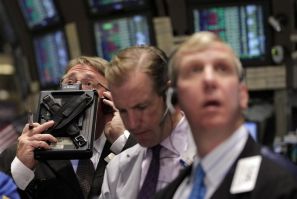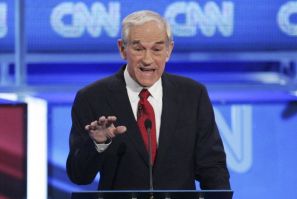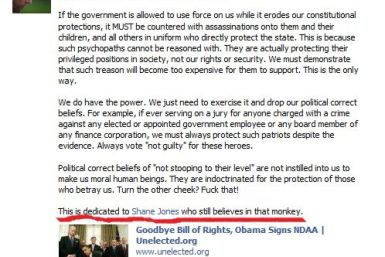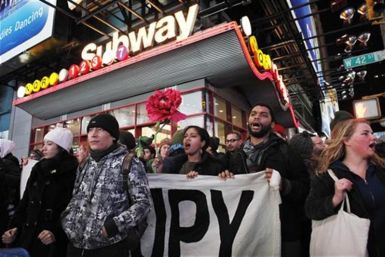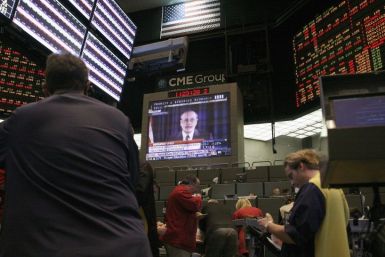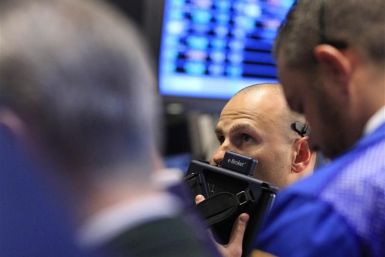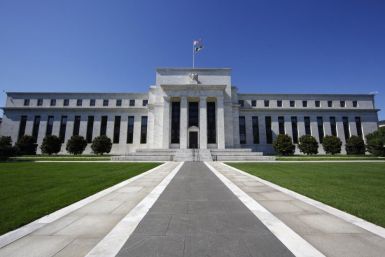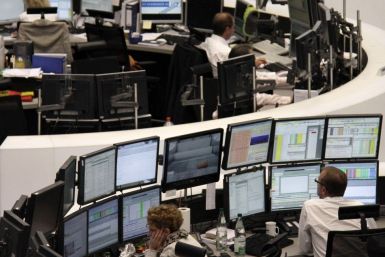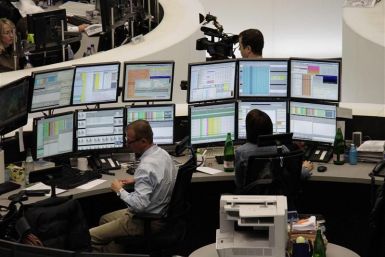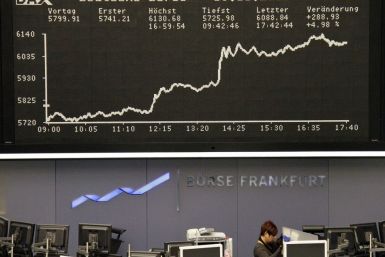The Federal Reserve is unlikely to need to ease monetary policy further given the country's steady if moderate pace of economic growth, Richmond Fed President Jeffrey Lacker said on Monday.
Politician Jules Manson, a former city council candidate and rabid Ron Paul supporter, posted an extremely racist tirade against President Obama following the signing of the NDAA, calling him a monkey and urging the n***r's assassination. Manson's tirade prompts a look at Paul's past associations with white supremacy groups, but those who call Paul racist go too far.
Americans are making progress in working down their heavy debt burden, but they are struggling to break out of another funk holding back the economy: their deep pessimism.
With less than two weeks left before the end of the year, all kinds of market participants, from economists at multinational banks to stock bloggers in their bedrooms, have begun to give their predictions for 2012. Here is a lucky set of seven predictions that could benefit investors next year.
A rally in stocks fizzled, leaving major indexes with modest gains on Friday, as Wall Street was torn between hope that U.S. economic data signals better times ahead and fear Europe's debt crisis will engulf world economies.
Europe's debt crisis threatens to throw a strengthening economy off track, but more monetary accommodation from the U.S. Federal Reserve is not the answer, a top Fed official known for his hawkish views on inflation said on Friday.
Inflation at the consumer level remains moderate -- and that should give the U.S Federal Reserve more time to stimulate the U.S. economy -- something that's good news for investors and job seekers alike.
The threat of Europe's financial crisis drifting overseas, slowing the U.S. recovery, remains. The Federal Reserve noted this week that Europe's debt crisis remains a threat to the U.S. economy, which it said is expanding moderately. Concerns linger over the health of the European banking sector and possible ratings downgrades in debt-ridden European countries.
A top U.S. Federal Reserve official on Thursday defended the central bank's decision to provide dollars for overseas banks stressed by Europe's debt crisis, saying the action was needed to protect the U.S. economy.
The U.S. banking industry is undergoing its most radical structural change since the Great Depression, according to S&P's Ratings Services Thursday.
This lack of action by central banks has clearly contributed to the pervasive negative mood felt by most investors.
An improvement in the U.S. employment picture last week and a rise in regional factory activity suggested an emerging divide between resiliency in the U.S. economy and faltering growth in Europe and Asia.
A government report revealed Thursday that initial claims for unemployment dropped 19,000 to a seasonally adjusted 366,000, according to the U.S. Labor Department. That's the lowest level since May 2008.
The number of people seeking state unemployment benefits fell for the second straight week, to the lowest level since May 2008, government data showed on Thursday, suggesting the labor market recovery is gaining momentum.
Stock index futures rose on Thursday, following three days of market losses and ahead of a batch of data including industrial production, jobless claims and New York manufacturing.
Stock index futures were higher on Thursday, following three days of market losses and ahead of a batch of data including industrial production, jobless claims and New York manufacturing.
Economic growth across the world will slow in 2012 due to the problematic combination of private-sector deleveraging, public-sector austerity and the lack of confidence in political leaders' ability to navigate these situations according to IHS, a leading macro-economic consultancy.
The U.S. Mint will not produce one dollar coins stamped with the faces of past U.S. Presidents according to the announcement by the Obama administration.
The bottom dropped out of gold prices Friday as technical supports collapsed, hedge fund managers turned holdings into cash and a surging dollar killed any vestige of physical demand.
European stocks fell on Wednesday as weak commodity prices sparked a selloff in the energy and materials sectors and as a falling euro and high Italian bond yields kept Europe's debt crisis in focus.
Stocks fell on Wednesday as weak commodity prices sparked a selloff in the energy and materials sectors and as a falling euro and high Italian bond yields kept Europe's debt crisis in focus.
Gold and silver assets were plunging dramatically Wednesday, with prices for bullion falling below their 200-day moving average for the first time since 2009 and shares of precious metals miners dropping hard.



